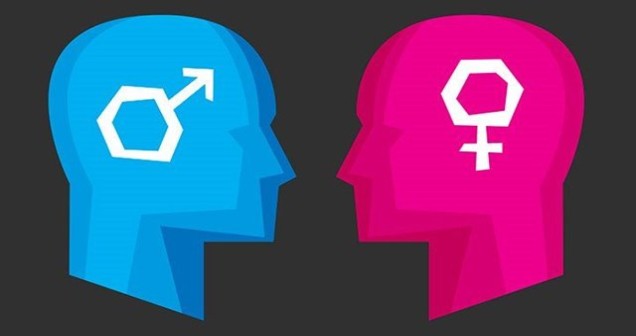 Lifestyle
Lifestyle
 Blogs
Blogs
 Blogs
Blogs
 Blogs
Blogs
 Baby
Baby
 Baby
Baby
 Baby
Baby
 Baby
Baby
 Lifestyle
Lifestyle
At what age do BPD symptoms show? BPD symptoms typically start to show in early adulthood, commonly in the late teens or early twenties. Discover more about when BPD symptoms manifest in individuals.

Symptoms during childhood:
In some cases, children who later develop BPD may display early signs and symptoms that can be indicative of the disorder. These symptoms can include intense mood swings, difficulty regulating emotions, persistent anger or aggression, impulsivity, self-harming behaviors, and instability in interpersonal relationships. However, since these symptoms can also be a part of normal childhood development, it is essential to consider the duration, intensity, and frequency of these behaviors.
Children with a history of early life trauma, neglect, or abuse may be at a higher risk of developing BPD or similar conditions in the future. The effects of such adverse experiences can have a significant impact on a child's emotional and psychological well-being, potentially leading to the development of BPD traits as they grow older.
Symptoms during adolescence and early adulthood:
Borderline personality disorder typically becomes more evident during adolescence and early adulthood. This period of life is characterized by major developmental changes, identity formation, and increased independence, which can magnify the symptoms of BPD. However, diagnosing BPD in individuals below the age of 18 can be challenging, as certain symptoms may overlap with normal adolescent behavior.
During this stage, individuals with BPD might experience chronic feelings of emptiness, extreme fear of abandonment, intense and unstable relationships, impulsivity, self-harming behaviors, recurrent suicidal thoughts or attempts, identity disturbance, chronic feelings of boredom or emptiness, intense anger or difficulty controlling anger, and dissociative symptoms.
Seeking professional help:
If you suspect that you or a loved one is exhibiting symptoms of BPD, it is essential to seek professional help as soon as possible. Early intervention and proper treatment can significantly improve the long-term outcomes for individuals with BPD.
Therapy, particularly dialectical behavior therapy (DBT), is considered one of the most effective treatment approaches for BPD. DBT focuses on developing skills to manage intense emotions, improve interpersonal relationships, regulate behavior, and enhance self-image. Medications may also be prescribed to address specific symptoms, such as mood stabilizers or antidepressants.
In conclusion,
BPD symptoms can first appear during childhood, but they are usually more prominent during adolescence and early adulthood. Early recognition, intervention, and targeted treatment can make a significant difference in managing the symptoms and improving the overall quality of life for individuals with BPD.
BPD symptoms typically begin to emerge during adolescence or early adulthood. However, it is important to note that the age at which symptoms show can vary widely among individuals.
2. Can BPD symptoms develop in childhood?While BPD is not typically diagnosed in childhood, some symptoms may be observed in individuals during their teenage years. However, a proper diagnosis of BPD is usually made in early adulthood.
3. Are there any early warning signs of BPD in teenagers?Some potential warning signs of BPD in teenagers may include intense and unstable relationships, impulsive behavior, extreme mood swings, self-harming tendencies, and a fear of abandonment. However, it is important to consult a mental health professional for an accurate diagnosis.
4. Can BPD symptoms worsen with age?BPD symptoms can vary in intensity over time, and some individuals may experience periods of improvement or stabilization. However, without proper treatment, symptoms may persist or even worsen in some cases. Seeking early intervention and ongoing support can help manage and alleviate symptoms.
5. Can BPD symptoms show later in life?It is uncommon for BPD symptoms to develop later in life, as they typically emerge in adolescence or early adulthood. However, some individuals may not receive a proper diagnosis until later in life due to different reasons, such as symptom masks or co-occurring mental health conditions.
 LATEST ARTICLES
LATEST ARTICLES

Am I a Millennial or Gen Z?

Am I bloated or fat?

Am I dehydrated or sick?

Are babies born with ADHD?

Are babies born geniuses?

Are babies born in September smarter?

Are babies actually talking when they babble?

What are 3 signs of a toxic relationship?

What are 10 signs of a toxic relationship?

Am I in a toxic relationship?

How do you find red flags in a toxic relationship?

Am I bloated or pregnant?

Am I bloated or showing at 9 weeks?

Am I bloated or showing at 10 weeks?

Am I bloated or showing at 7 weeks?

Are acai bowls just smoothies?

Are all pumpkins good for soup?

Are acai bowls healthy or unhealthy?

Are air fried potatoes healthy?

Are albondigas the same as meatballs?

Am I being Gaslit or am I the gaslighter?

Am I bloated or did I gain weight?

Am I allergic to vodka?
 POPULAR ARTICLES
POPULAR ARTICLES

Am I a Millennial or Gen Z?

Am I bloated or fat?

Am I dehydrated or sick?

Are babies born with ADHD?

Are babies born geniuses?

Are babies born in September smarter?

Are babies actually talking when they babble?

What are 3 signs of a toxic relationship?

What are 10 signs of a toxic relationship?

Am I in a toxic relationship?